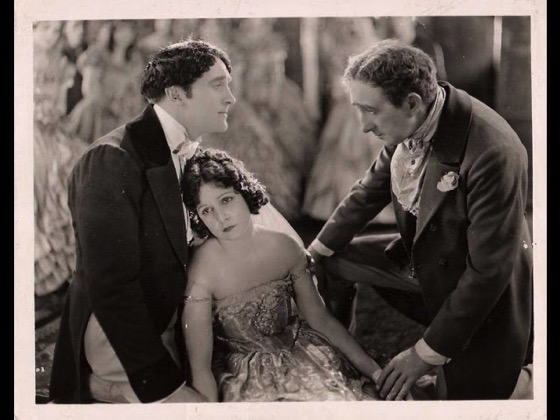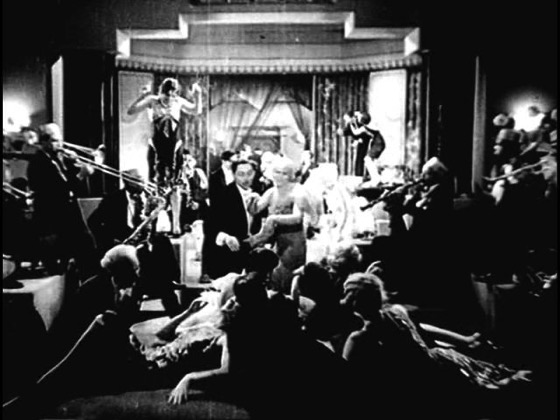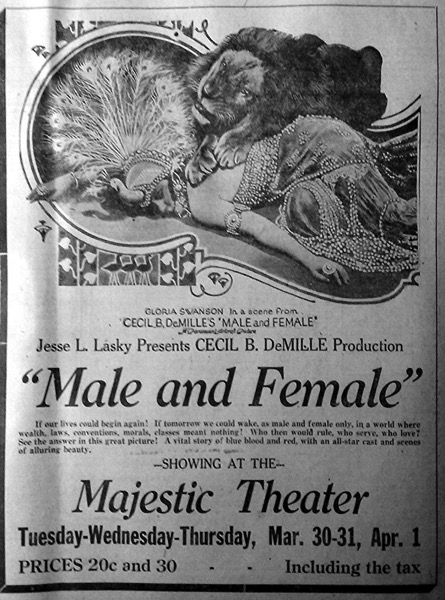I usually use Google Alerts to find mentions of The Monkees but this weekend something interesting happened. Google Alerts found my name in an essay on the JSTOR Daily about the new BBC miniseries version of Little Women, adapted by Heidi Thomas of “Call the Midwife”) from a novel by a female writer (Louisa May Alcott, as if you didn’t know) and directed by a woman (Vanessa Caswill).
My Summer of Watching Little Women by Benjamin Winterhalter
The writer of the essay was a male, JSTOR Daily’s features editor Benjamin Winterhalter and he was reminiscing about a summer in his elementary years when his mother and friends dissected all the filmed adaptations of the novel in preparation for writing an article — “A Feminist Romance: Adapting Little Women to the Screen” for Tulsa Studies in Women’s Literature.
Winterhalter’s article came up because along his research way he came across an Op-Ed I had written for the Los Angeles Times, “What ‘Little Women’ Is Really About” about the 1995 Robin Schiff adaptation (starring Winona Ryder) which I had framed as both a more deeply feminist interpretation but, more importantly, accessible to all as the story of a writer finding their voice.
How fun to be reminded of that Op-Ed and to see how accessible my earlier work can be with archives going digital. It’s also good timing as I often recommend to screenwriting students that they write for various local publications in order to get their names out there and to fill out their writing CVs. Here’s an example of a piece I wrote when I had a passionate idea ( the one about how this is more the story of a writer finding their voice than merely a bunch of sisters surviving the Civil War). Since I did not see that idea represented in the mainstream press, I brought it to their attention and they noticed it and presented it to their readers.
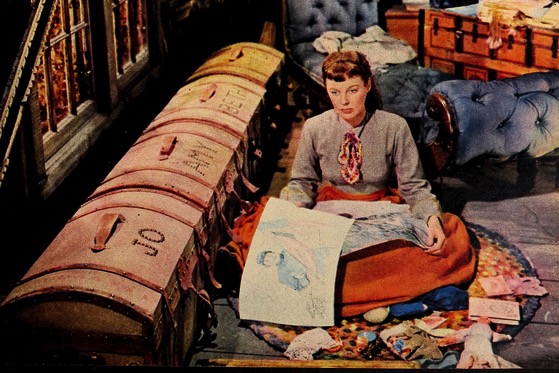
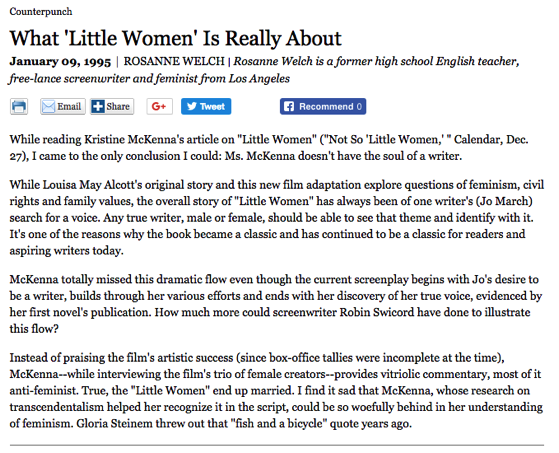
![10 The New Companions from Gender Diversity in the Who-niverse [Video] (0:59)](https://rosannewelch.com/wp-content/uploads/2018/05/gender-dw-10-companions.jpeg)
![09 Regeneration of Doctor Who from Gender Diversity in the Who-niverse [Video] (0:57)](https://rosannewelch.com/wp-content/uploads/2018/05/gender-dw-09-davies.jpeg)
![08 MacGyver, Douglas Adams and Doctor Who from Gender Diversity in the Who-niverse [Video] (1:10)](https://rosannewelch.com/wp-content/uploads/2018/04/gender-dw-08-macgyver-adams.jpeg)
![07 Terry Nation, Doctor Who and MacGyver from Gender Diversity in the Who-niverse [Video] (0:50)](https://rosannewelch.com/wp-content/uploads/2018/04/gender-dw-07-terry-nation.jpeg)
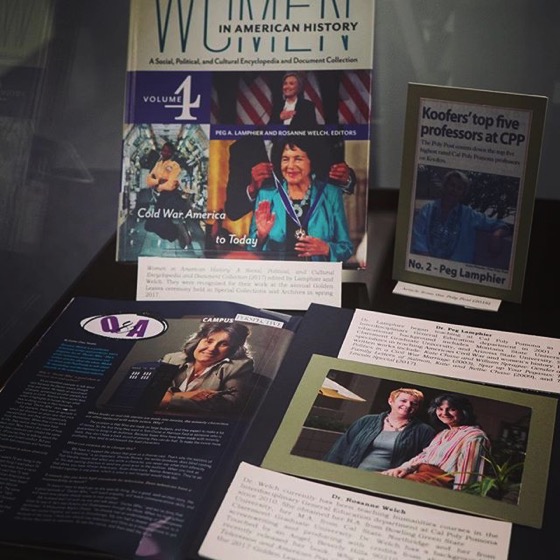
 and Follow
and Follow![06 Barbara Is 1st Strong Female Character from Gender Diversity in the Who-niverse [Video] (0:25)](https://rosannewelch.com/wp-content/uploads/2018/04/gender-dw-06-barbara.jpeg)
